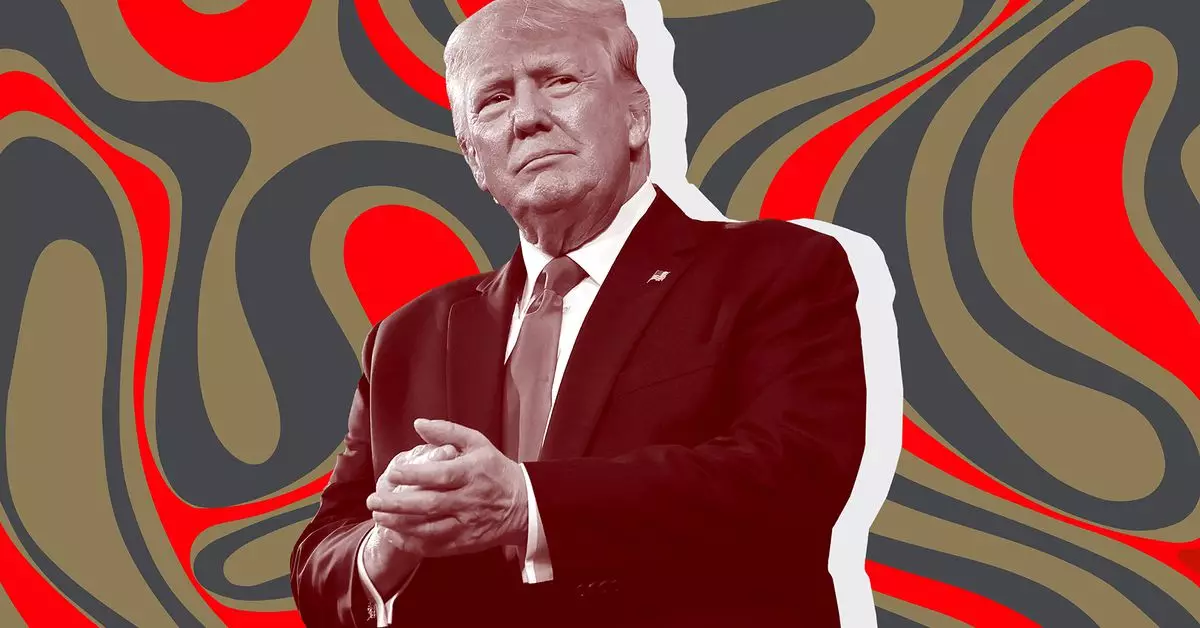The intersection of politics and cryptocurrency has grown increasingly complicated, particularly with the recent launch of Former President Donald Trump’s cryptocurrency initiative, World Liberty Financial. This venture encapsulates a broader trend in which political figures increasingly dabble in decentralized finance (DeFi) projects. The project has raised eyebrows not only for its ambitious plans but also for the unique challenges and controversies it faces in a saturated market.
World Liberty Financial streamlined its token sale on a platform experienced heavy traffic and aggressive investor interest, indicative of its high-profile backing. However, it raises questions about the nature of such endeavors, especially those linked to political stature. Despite the project promising functionalities aimed at aiding the unbanked, it simultaneously restricts participation to accredited investors—a contradiction that begs scrutiny.
The launch day was marred by technical difficulties, notably the crashing of the World Liberty Financial website shortly after its token sale commenced. Such outages, while often commonplace in high-demand launches, reflect a lack of preparedness that could deter potential investors. According to Sandy Peng, a WLFI advisor, the site received an extraordinary 72 million unique visits in the first hour. This unanticipated user traffic led to subsequent outages, causing frustration and raising concerns regarding the project’s operational capabilities.
The discrepancies between the overwhelming interest and the actual number of individuals who successfully acquired WLFI tokens further illustrate the hurdles World Liberty Financial must navigate. As reported, only 5,317 unique wallet addresses held the token by Tuesday afternoon, despite claims of having sold over 532 million tokens. This clear disconnect casts doubt on the project’s claims about its market reception and could undermine investor confidence going forward.
One crucial component in the discourse surrounding World Liberty Financial is the definition of who qualifies as an accredited investor. The Securities and Exchange Commission (SEC) stipulates that participants must possess either a minimum income or a high net worth to engage in such investments. This criterion not only restricts access to the project but also puts into question the very foundation on which the platform was marketed—helping those marginalized by traditional financial systems.
This paradox underscores a deeper issue within the realm of blockchain projects intertwined with political narratives. While they often promote financial inclusivity, the inherent gatekeeping mechanisms—exacerbated by existing regulatory frameworks—create barriers for many prospective investors who may stand to benefit the most from such innovative financial solutions.
The personnel involved in World Liberty Financial further highlight the complex dynamics at play. The “gold paper” released alongside the token sale names Trump as the “chief crypto associate,” while his three sons serve as Web3 Ambassadors. This alignment not only raises inquiries about the motivations behind their involvement but also reflects a broader trend of leveraging political capital within emerging financial technologies. Political personas in the cryptocurrency sector can sway public perception and risk creating a landscape where investment decisions are influenced more by name recognition than by project merit.
Despite Trump and his associates suggesting that World Liberty Financial aims to serve the economically marginalized, the underlying structure contradicts that narrative. The limited role the public can play in governance—where token holders may have some say but cannot freely trade the token—places additional limitations on access and influence.
As World Liberty Financial embarks on its journey within the tumultuous waters of cryptocurrency, it must address significant challenges from technical glitches to regulatory barriers. The juxtaposition of its aspirations to assist the unbanked with the reality of its exclusive investor pool prompts critical reflection on the genuine intent behind such projects. If it hopes to gain credibility and serve its purported mission effectively, the company will need to demonstrate resilience, adaptivity, and, perhaps, a deeper commitment to inclusivity that aligns with the growing demands of today’s crypto-conscious investors. Only time will reveal whether World Liberty Financial can carve out a lasting presence in both the political and financial arenas.


Leave a Reply
You must be logged in to post a comment.